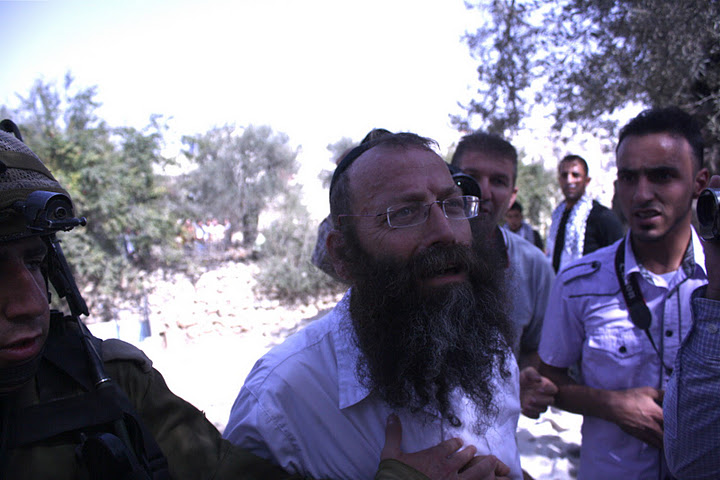Tag: Olive Harvest 2011
-
Harvesting olives as a statement of resistance
by Ben Lorber 24 October 2011 | The Electronic Intifada Palestinian villages across the West Bank are undertaking their annual olive harvest this October, amid fears of harassment and violence from Israeli settlers and soldiers. While the Palestinian olive harvest is a tradition that stretches back countless generations, the phenomenon of settler violence during the olive…
-
Israeli tanks patrol olive farmers in Gaza
23 October 2011 | International Solidarity Movement, Gaza Olive farmers and volunteers were picking olives on 23 October 2011 when they were circled by two Apache helicopters and were faced by four tanks at certain points in the day. This video shows one of the tanks.
-
As settlers disrupt olive harvest, Israeli officer declares: “I am the law, I am God.”
by Alistair George 22 October 2011 | International Solidarity Movement, West Bank Intimidation of Palestinians in the Israeli-controlled H2 section of Hebron continued today as the Israeli military and settlers harassed Palestinians and international observers as they attempted to pick olives on their land in Tel Rumeida. Around 40 students from different Palestinian universities marched…

